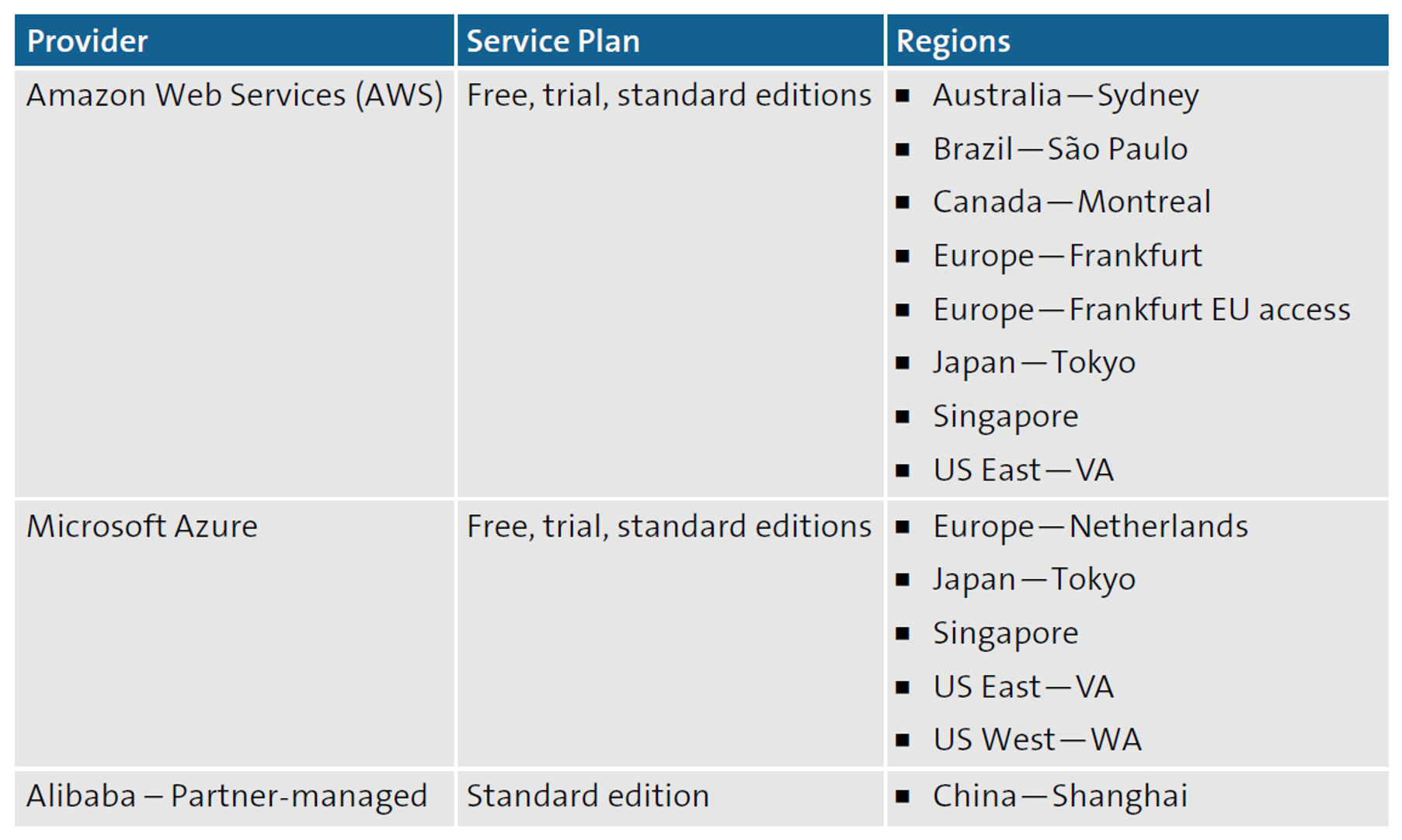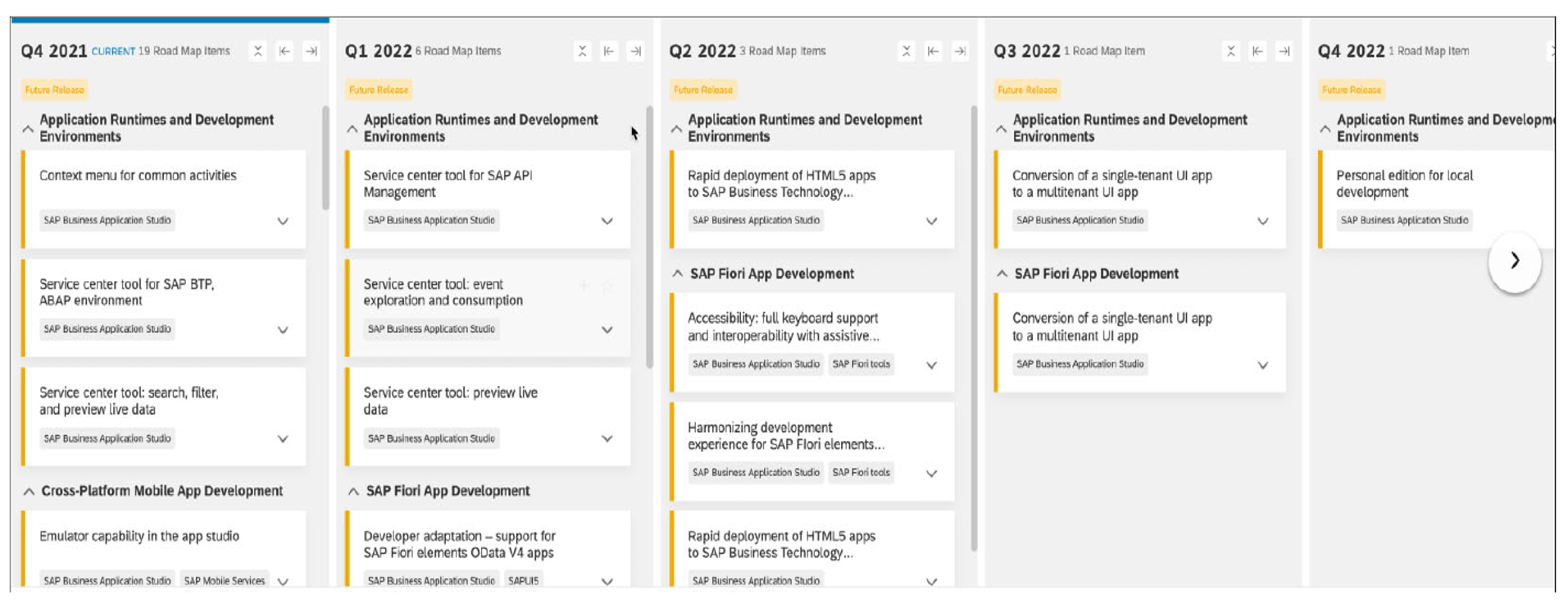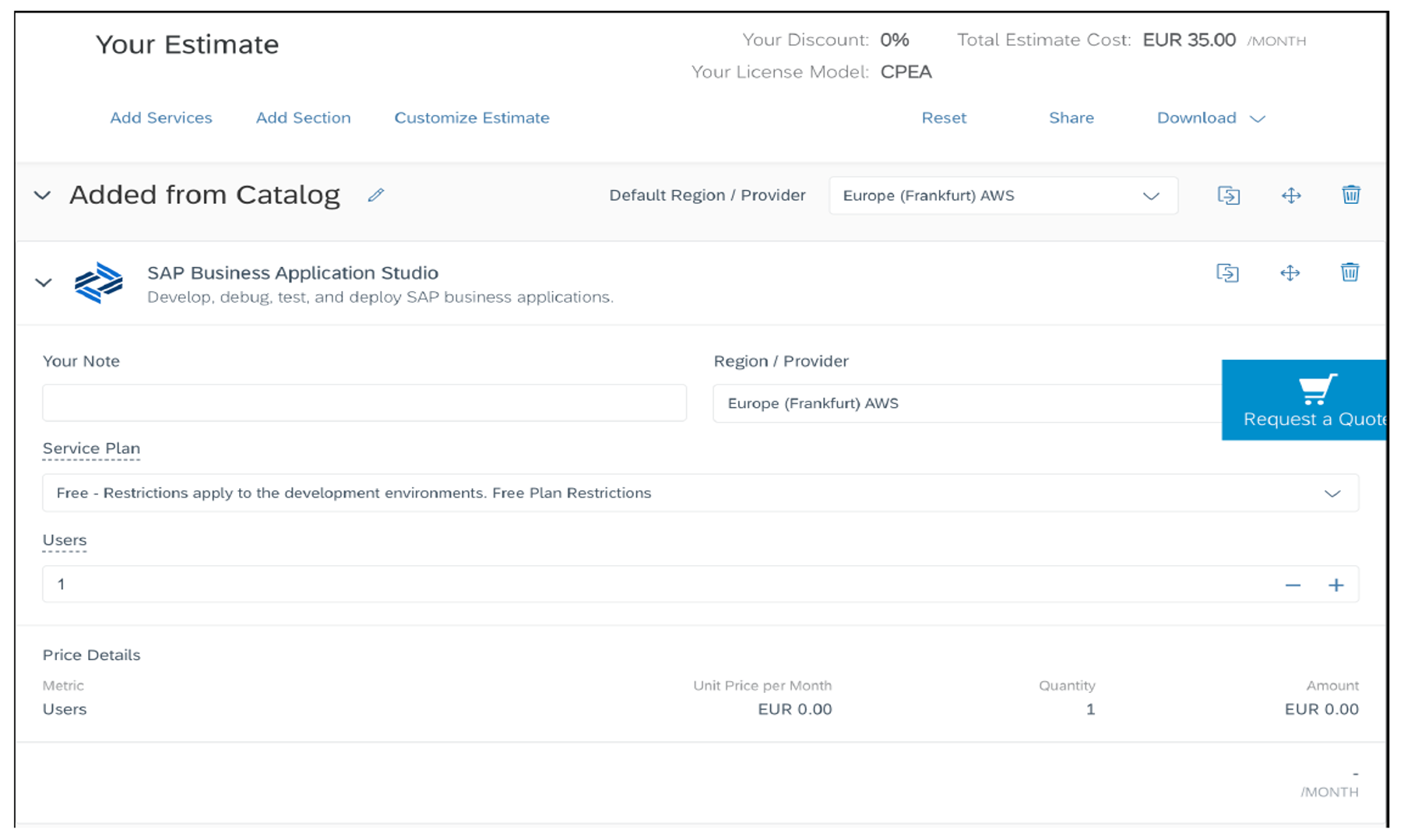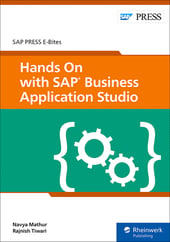SAP Business Application Studio is a browser-based editor based on Eclipse Theia, and it’s a virtual container that runs on Linux-based architecture, providing an integrated experience of DevOps and development to the end user.
In this blog post, we’ll look at SAP Business Application Studio in more depth, including features, when it can be used, availability, and pricing.
Features
SAP Business Application Studio supports the following features.
Development Space Manager
A development space or dev space is an environment integrated with all the tools, functionalities, and resources required to develop your application. Different types of applications require different types of development environments. The type of development environment depends on the type of application that you choose to build, resulting in the different set of tools you’re provided. You can add other tools and various other components to improve the application development as well. You can also create, delete, run, stop, and export the dev space from your dev space manager.
Productivity Tools
SAP Business Application Studio improves the development process by using productivity tools, including the following:
- Application creation from templates: The development environment generates applications via command line or through a graphical wizard to start a completely new SAP business application from a given list of available templates.
- SAP Cloud Application Programming Model project explorer: The project explorer shows a logical object in SAP Cloud Application Programming Model framework-based projects. The project explorer shows services and data models found in the project from the semantic point of view and not from the file structure.
- SAP HANA project explorer: The SAP HANA project explorer helps you develop native SAP HANA applications. Its extension consists of graphical/text-based editors to model the SAP HANA database artifacts. It helps you generate the project from project templates and modify the calculation view opened either in the XML view or graphical view in the editor. The project explorer also helps you inspect and fix issue (if any) in SAP HANA runtime artifacts.
- Run configurations: Create run configurations that provide how your project or unit test is executed. This comprises the ability to explore and resolve application dependencies. The application can be run locally in the dev spaces with the consuming data from a backend or using mock data maintained inside your project structure.
- Multitarget application (MTA) tools: MTA tools are a collection of scenario-agnostic tools that are used for developing a full-stack application supported by the MTA model. These tools help you create, test, extend, and deploy the application to SAP Business Technology Platform.
IDE Tools
SAP Business Application Studio is a complete IDE that incorporates various functional tools such as multiple predefined templates to choose from, quick access and searches sections, command-line interface (CLI), and built-in integration with Git.
Build and Deploy Applications
SAP Business Application Studio helps you build and deploy applications to SAP BTP and on-premise SAP systems.
Consume SAP Services
Consume SAP services from various sources, SAP and non-SAP, including from SAP API Business Hub, SAP S/4HANA Cloud, on-premise ABAP systems and internet backends, services from the workspace, and local services.
Code Editor
SAP Business Application Studio provides you with a code editor where you can build the application using programming languages such as SAPUI5, Typescript, XML, Java, Node.js, Python, and so on.
Layout Editor
SAP Business Application Studio enables developers to develop user interfaces (UIs) for applications using the layout editor. You can select from a wide range of UI controls that you can add to your project by dragging and dropping them onto your application’s editor canvas.
Scenarios
SAP Business Application Studio covers a wide range of scenarios for the developer by providing them with predefined templates and custom features for their actual scenario, such as SAP Fiori, SAP Cloud Application Programming Model applications, SAP S/4HANA extensions, and workflows. All these scenarios help you create a different type of application.
General Availability
SAP Business Application Studio is available in almost all the data centers managed by SAP and partner-managed data centers such as Alibaba. The table below lists the most popular data centers, but be aware that this is a growing list, and more data centers will likely become available over time.

As you can see, you can only use the trial or free edition in AWS or Microsoft Azure service provider data centers. In Alibaba, which is partner-managed, you need to buy the license to use SAP Business Application Studio and its service extension. As mentioned, however, SAP is planning to add more data centers in the future.
Pricing
As mentioned earlier, SAP Business Application Studio has both free trial and standard editions. The free trial can be likened to a pay-as-you-go plan because although the basic services are free, many extensions require additional (paid) subscriptions. Based on the types of services you’re using, how you’re using them, and whether you’re using services such as SAP Workflow Management, SAP S/4HANA extensions, and so on, you may need to subscribe and pay for those additional services. Most of the commonly used service extensions do require payment, so it’s advisable to go with the standard edition pricing, as you can save a lot of money over buying those services individually. The trial plan is more applicable to using for a certain duration to explore the new capabilities, which are continually added with the new releases.
Below shows you a glimpse of new features and the development road map. Note, however, that it just shows the planned features to be released quarterly, which may change based on various internal factors.

Now coming back to pricing, if you want to calculate the prices for using different service offerings, you can get an estimate using www.sap.com/products/businesstechnology-platform/estimator-tool.html. The final figure shows the UI of the cost estimator tool.

Editor’s note: This post has been adapted from a section of the e-book Hands On with SAP Business Application Studio by Navya Mathur and Rajnish Tiwari.

.png?height=600&name=How%20to%20Migrate%20an%20SAP%20Web%20IDE%20Project%20to%20SAP%20Business%20Application%20Studio%20(2).png)

Comments